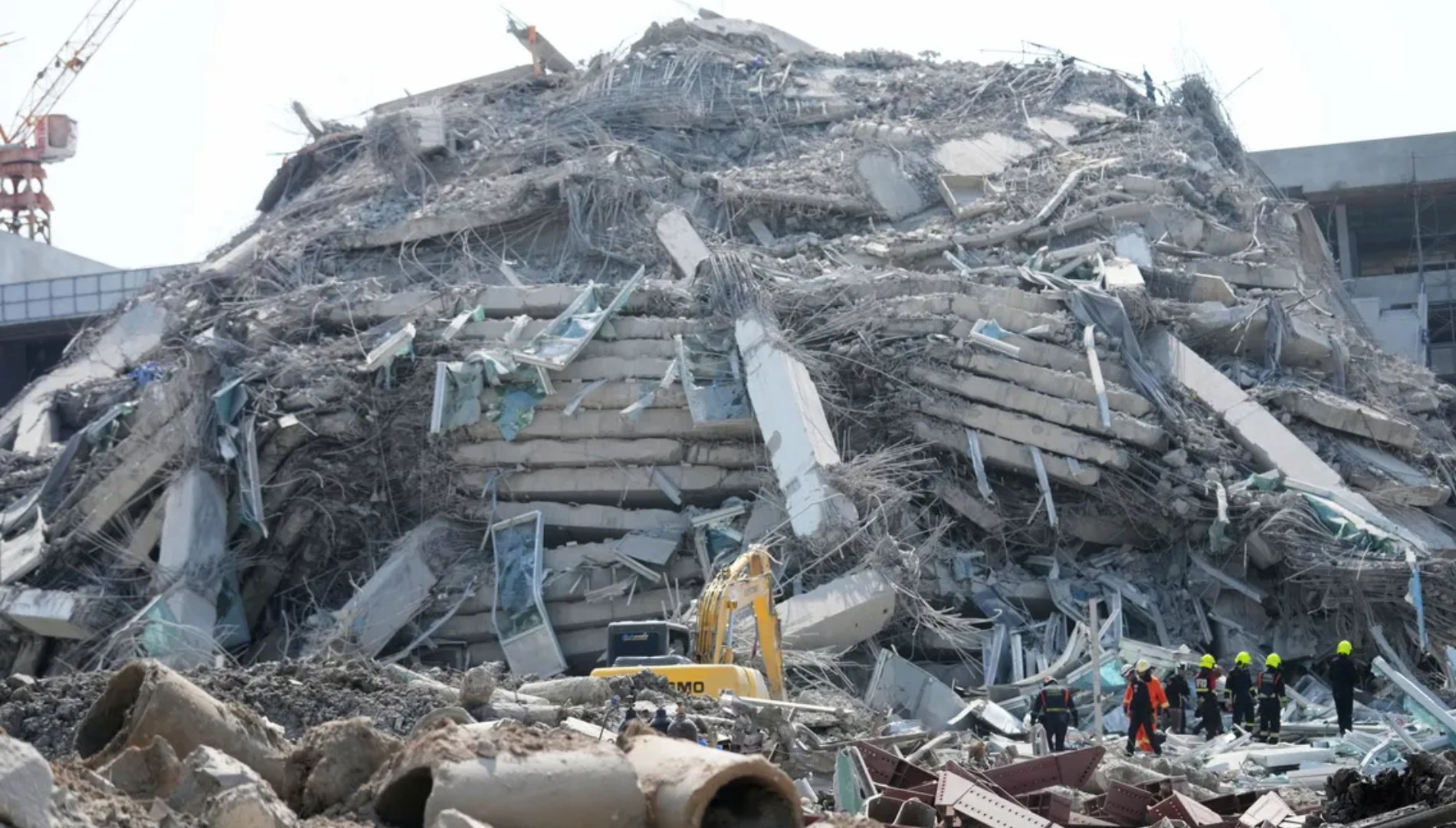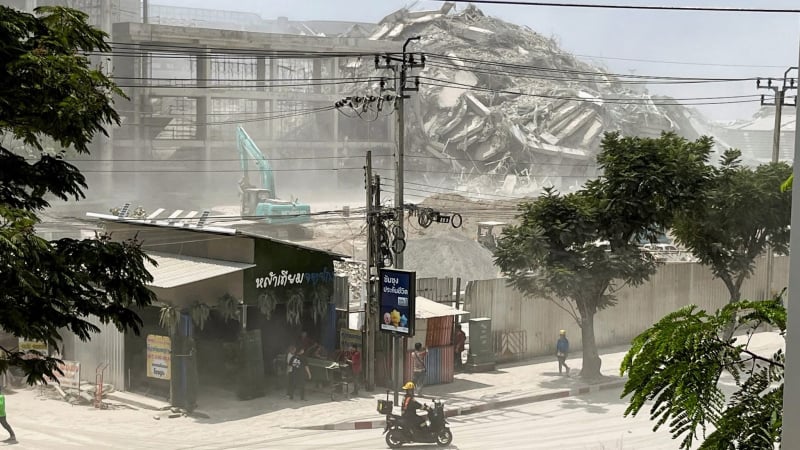The 7.7 magnitude earthquake that struck midday on March 28th, with its epicenter near Mandalay, Myanmar's second-largest city, has had a serious impact on the country's tourism industry. Mandalay, a city famous for its UNESCO-recognized temple complexes and cultural sites, suffered significant damage, affecting local tourism activities. Not only Myanmar, but neighboring Southeast Asian countries, including Thailand and Laos, were also affected by the earthquake, with a noticeable decline in international tourist numbers due to safety concerns.
In light of this situation, the UK's Foreign, Commonwealth and Development Office (FCDO) has issued a travel advisory for British citizens planning or currently residing in Thailand and Myanmar. The FCDO advises British citizens against traveling to certain southern Thai provinces, including Pattani, Yala, Narathiwat and Songkhla, unless absolutely necessary.
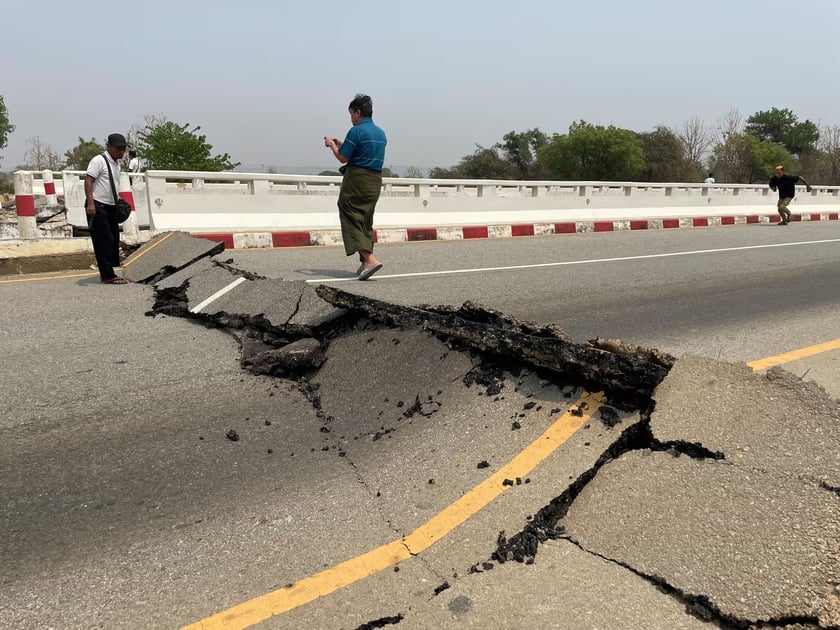
Myanmar is now on the list of countries around the world that people should "not travel to" following the earthquake.
For travelers currently in Thailand, FCDO advises them to monitor news regularly, follow local authorities' instructions, and stay away from tall buildings until it is confirmed safe. This is to ensure maximum safety for travelers in the event of aftershocks or other emergencies.
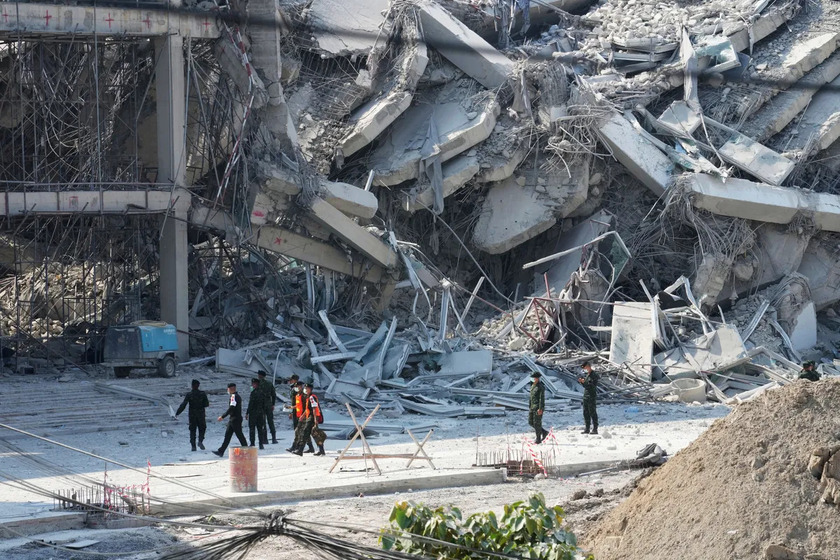
Numerous aftershocks from this earthquake have led many countries to issue travel advisories to their citizens when traveling to the country.
Travel companies in the UK have quickly implemented timely support measures for their customers. Customers currently traveling to Thailand or Myanmar, or those who have booked tours to these two countries in the near future, have been notified that they are allowed to change their itineraries or cancel their trips without incurring any penalties. This demonstrates the travel companies' concern and responsibility for the safety and rights of their customers.
In addition, travel insurance companies have also recorded a significant increase in the number of insurance claims from tourists. These claims mainly relate to disruptions to travel itineraries due to the earthquake. This shows tourists' concerns about safety in the area and their desire to have their rights protected in the event of an incident.

The UK's Foreign, Commonwealth and Development Office (FCDO) has issued a travel advisory for British citizens in Thailand and Myanmar.
According to TTW, the travel advisory issued by the UK's Foreign, Commonwealth and Development Office (FCDO) could lead to similar advisories from other European countries. This would directly impact airline bookings for April and May, the peak tourist season in Thailand and Southeast Asia. The decline in tourist numbers could have negative consequences for the region's tourism industry, which is currently recovering from the COVID-19 pandemic.
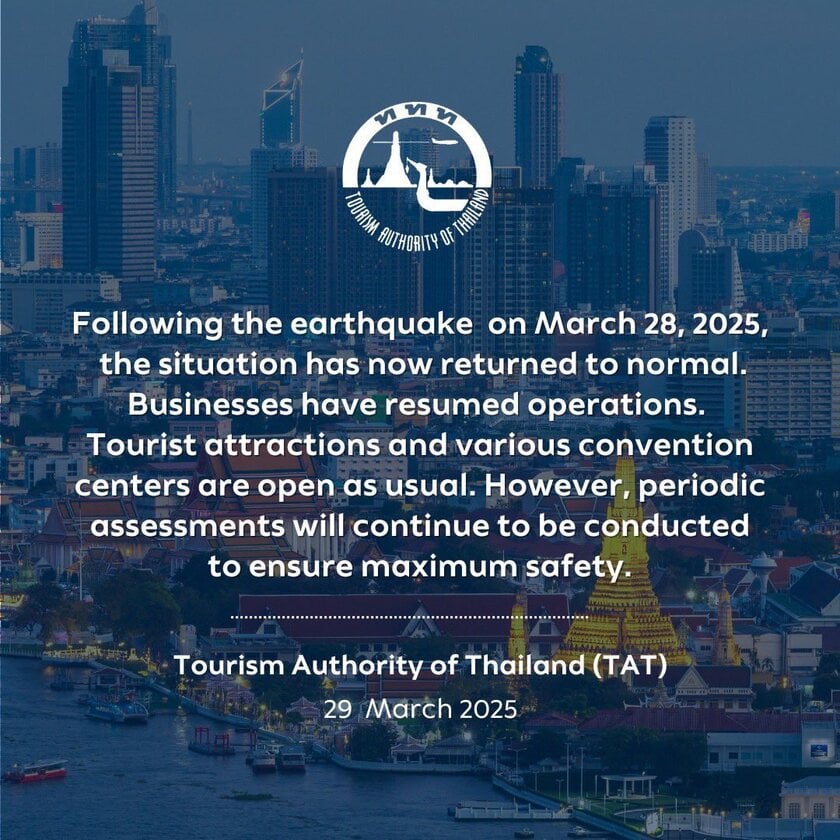
Latest announcement from the Tourism Authority of Thailand.
Not only the UK, but the Canadian government has also issued travel warnings for Laos, another country in the region affected by the earthquake. Specifically, Canadian tourists are advised to avoid the provinces of Xaisomboun, Bokeo, and the Golden Triangle region, which borders Myanmar and Thailand. These warnings demonstrate the international community's concern for the safety of tourists in Laos, particularly in popular tourist destinations such as Luang Prabang and Vientiane.
In light of the complex security situation following the 7.7 magnitude earthquake, the Macau Tourism Office (MGTO) of Hong Kong (China) has promptly issued a Level 1 travel advisory for Myanmar. This advisory aims to raise awareness and ensure the safety of Macau residents planning to visit or currently residing in Thailand, Myanmar, and Laos. The MGTO advises everyone to exercise high vigilance, closely monitor the situation, and regularly obtain updates from official sources.
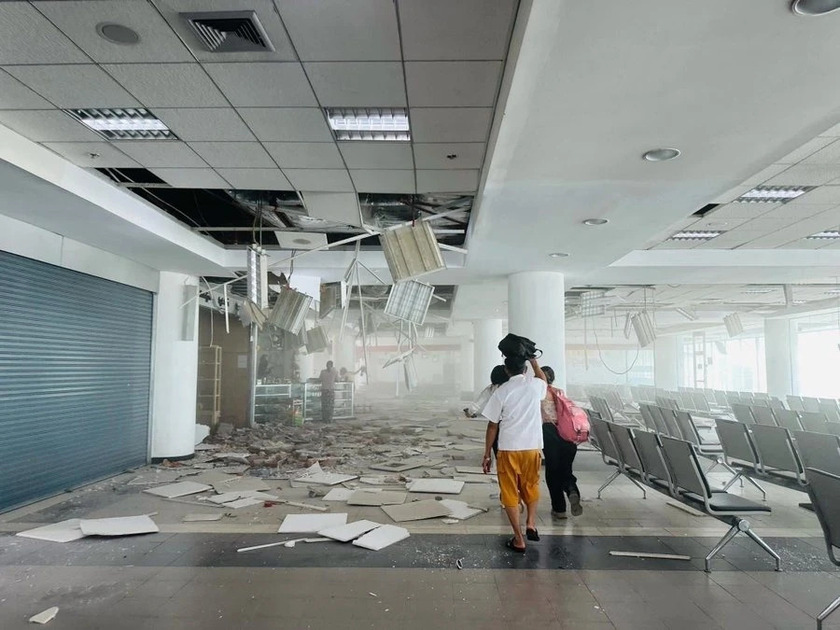
Tours to Myanmar are likely to be postponed for a number of reasons, but the most important is the safety of tourists.
To support Macao citizens in this emergency situation, telecommunications providers in Macao have proactively implemented measures to assist with emergency communication. To date, 1,475 Macao mobile users roaming in Myanmar, Thailand, and Laos have received the necessary assistance. This demonstrates the concern and responsibility of telecommunications providers in ensuring the safety of their citizens.
Given the potentially complex regional security situation, many countries with large numbers of tourists visiting Thailand, such as Australia, India, China, and Singapore, are expected to continue issuing their own updated advisories. These advisories will provide detailed information on the security situation, preventative measures, and emergency contact channels.
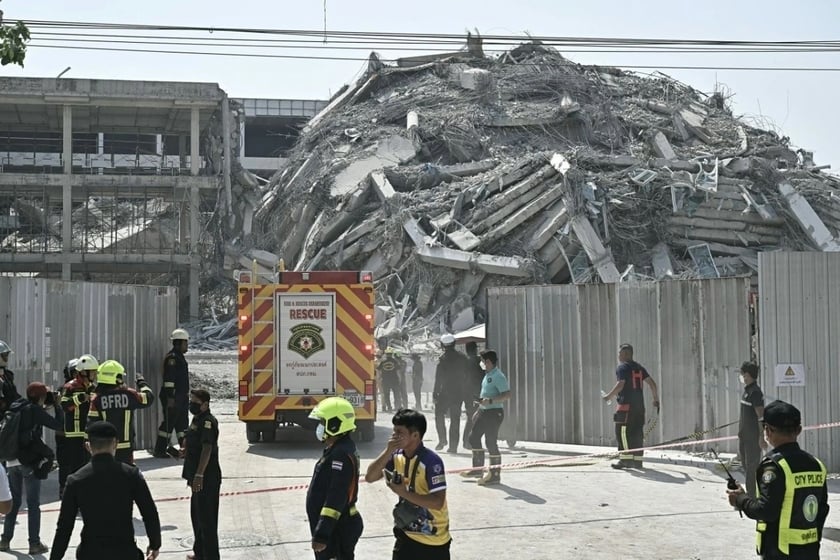
Information regarding recovery and tours will be announced by Myanmar later.
Similarly, embassies in Myanmar and Thailand have established hotlines to assist their citizens during this time. These hotlines operate 24/7, ready to provide information, support, and answer citizens' questions in emergency situations.
To date, although no airlines have issued mass cancellations, airlines are advising travelers flying to Mandalay, Bangkok, or Chiang Mai to constantly check flight information for updates. Travel experts anticipate a ripple effect of air travel disruption across other parts of Myanmar and northern Thailand in the coming days.

 VI
VI EN
EN



